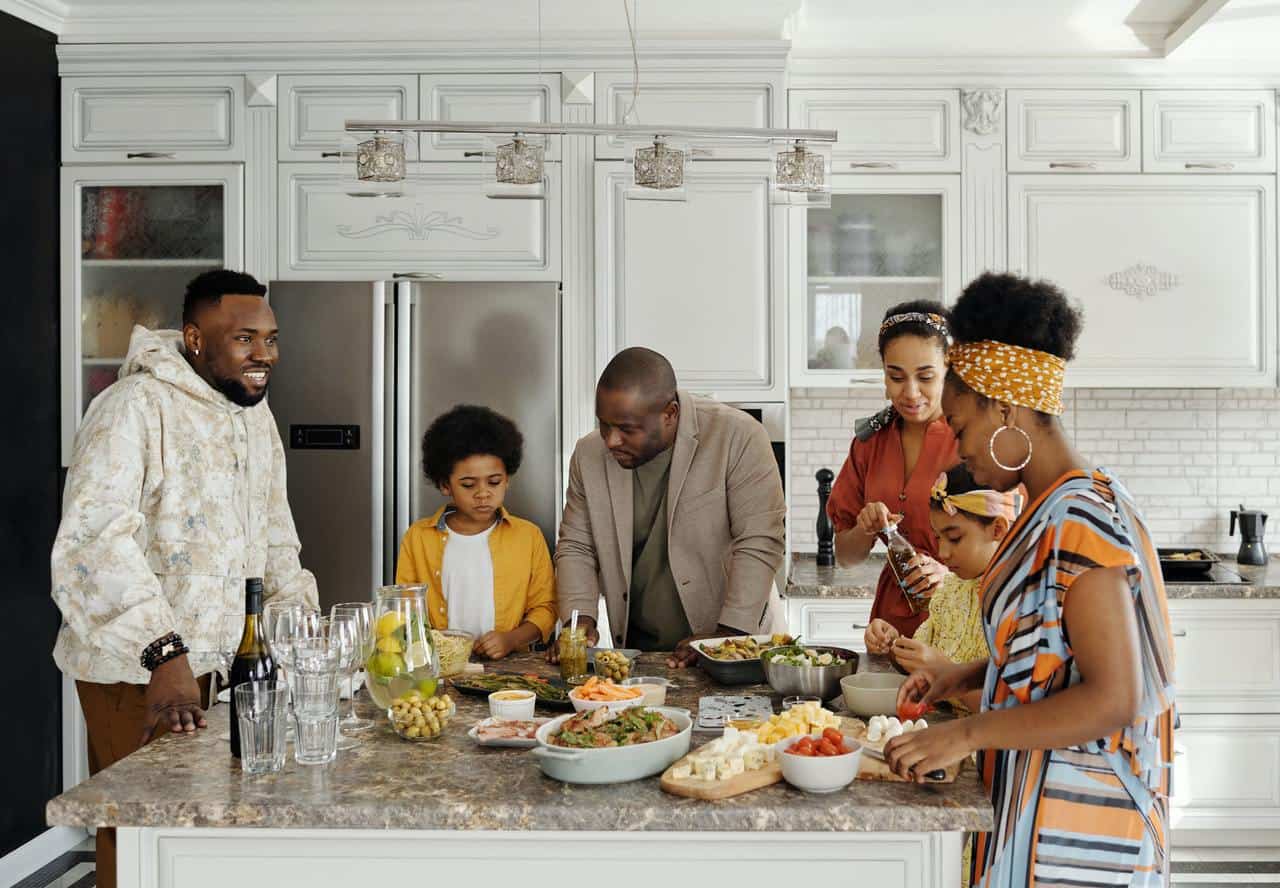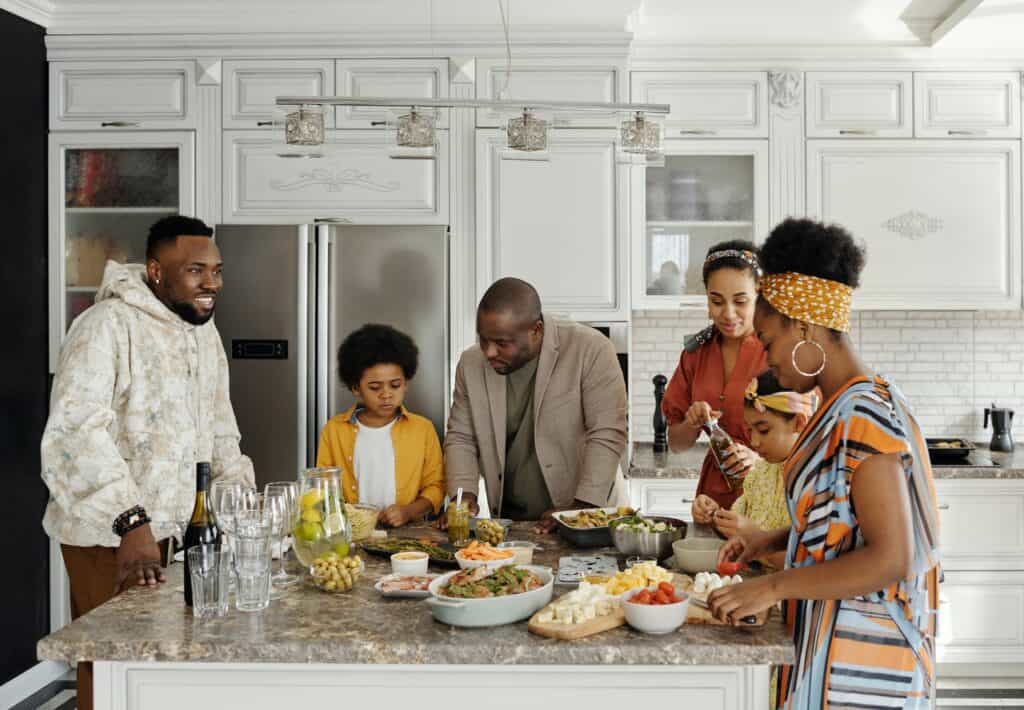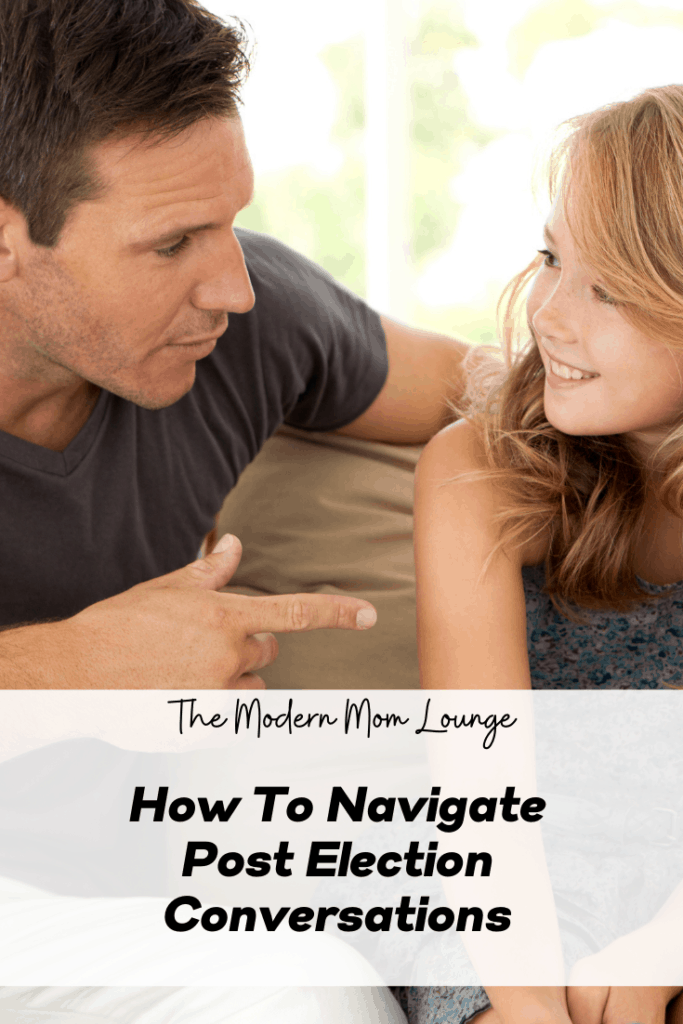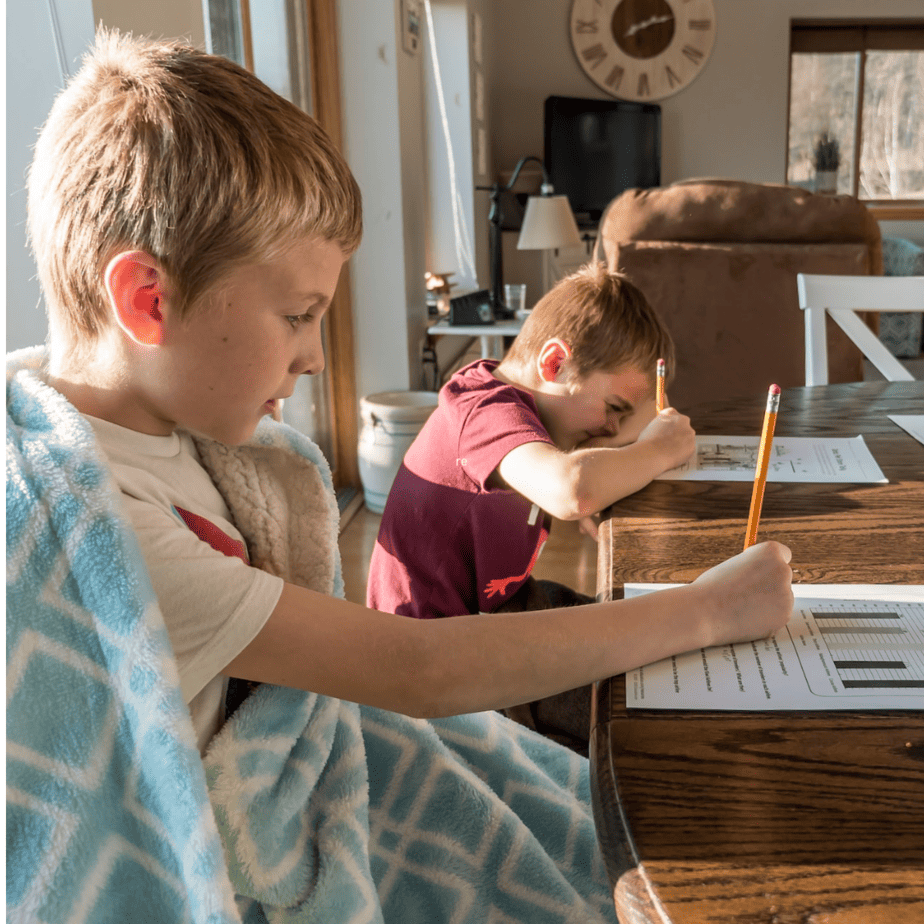How To Navigate Post Election Conversations


Wondering how to navigate post election conversations with your partner and kids? We interviewed Melyssa Edmunds of The Marriage Couch, who enlightened us with her years of expertise as a renowned couples and family therapist.
Election 2020, in the midst of an international pandemic, has been quite interesting to say the least. Melyssa sheds some light on how to approach conversations about this year’s election with your family members. Her tactics can apply to many situations, not just elections!
JAMI: How do you talk to your partner about what’s going on post-election? How do you recommend how to start or bring about conversation with your kids when it comes to the election? I don’t think I’ve ever been through an election where it has affected kids as much.
MELYSSA: I would agree. I think in any conversations that I’ve had, if I try and find a silver lining in what feels like a chaotic state of the world and specifically our country, the bright side is that my kids are talking about it 24/7. Yes it’s stressful but the fact that they are educated, they’re knowledgeable, they have a perspective and a point of view gives me hope about our future. You know that they care and there’s not apathy.
COVID is on everyone’s mind, but this is so front and center right now.
JAMI: Thinking about the election and politics and so much emotion and fear around what’s happening in our country and no matter what side you’re on, how have you seen that show up with the couples you’re working with and in your practice?
MELYSSA: It brings out a lot of fear and a lot of anxiety no matter what side you’re on. They’re worried about finances. They’re worried about what’s going to happen in the next week, even tomorrow, next month. When are we going to know? So there’s a lot of fear and a lot of stress happening for everyone across all sides of the spectrum. When they bring this fear into the house, it causes a lot of stress and that trickles down to the kids. The kids are feeling it. They’re listening. They are hearing everything because they’re little sponges. Usually when there is stress with a marriage, your partner tends to get the brunt of what’s going on. They tend to see you grumpy; they tend to see you in your most real place, so it’s really been showing up in a lot of anxiety and a lot of fear and a lot of people don’t know how to say, “I’m scared. I’m worried.”

JAMI: What advice do you give people on how to manage that?
MELYSSA: We feel fear about so many different things but this is everyone’s fear right now. There’s a stereotypical thing that therapists say – Use “I” statements. Say “I feel what…” or “How do you feel?” It’s super important to actually use one of these statements, but use it in a much more therapeutic way. If you’re in the house and you’re trying to talk to your partner, first be vulnerable with them. If you know that you’re coming off as criticizing, try and check yourself. Try and see where that’s coming from. Why are you being critical? Is it really a vulnerability?
If you’re on the flip side of that criticism, try and hear it as if your partner is being vulnerable. Try to translate it for them because in that moment they can’t translate it. There’s something going on where it’s not happening. In a marriage some days you’re going to be stronger than your spouse and vice versa so that whole field movement is, “I feel _________” and you say an emotion. Also say, “I need ________”. A lot of people don’t follow up the “I feel ________” with I need ________”. They need something to be able to fix it. A lot of partners are not very emotionally inclined to try and grasp that and try and talk about those conversations so they need something concrete. We can’t even anticipate our own needs half the time, so imagine trying to anticipate and mind read what your partner does. That’s not a muscle people are used to flexing. When you’re in counseling it is something that you try to have people role play and do as well as ask them to practice it at home as well.
People are like, “Oh yeah that’s easy. I’ve got it. Many times when they actually practice it they’ll say, “I feel angry when you suck,” and “I need blank”. That’s not the event that happened; that did not truly happen. I have remind them that it has to be an event that really happened, such as, “I feel invisible when you walk in the door and don’t give me a kiss,” and “I need you to walk in the door like this.” Very concrete – something that actually happens so that the person’s not feeling attacked and feeling kind of clueless.
Instead of blaming, or just saying what the problem is, you’re helping to help that person also get to a solution. What is the solution? What’s going to make me feel better? Don’t expect mind reading, which we do way too often.
JAMI: What is your advice on how to interact with kids when there is this type of fear and anxiety in the house?
MELYSSA: There’s really a big emphasis on what we’re doing as an example. Are we showing them that it’s okay to yell? If we’re stressed out about our kids – look at yourself.
JAMI: What are we doing in order to try and teach them how to deal with whatever’s going on?
MELYSSA: We’re speaking specifically about what’s happening today but that’s a tool that they can use all the time.

JAMI: We’re in a holding pattern right now of getting a final outcome. In the next few days as we await (and hopefully it’s not longer than that) the outcome of the election, what are some tips that you can give to families so that they’re not fixated/obsessed/focused/glued to the television? What are some healthy ways for them to engage as a family without disregarding the fact that this is going on, but also bringing balance?
MELYSSA: Get outside. Have the ability to get out in the sunlight! Sunlight is very effective for Vitamin D which enforces your mood. Get away from the news for a little bit. Pull yourself away from the doomsday messages over and over and over.
JAMI: What’s the best way to approach sitting down and talking about it with intention?
MELYSSA: A lot of times kids will give you so many messages, but you have to be emotionally available in order to pick them up. They might be saying something that is so profound and so incredible but, if you’re on your phone or if you’re talking to a friend or if you’re busy doing something else, you miss it and it’s going right over your head. Be intentionally available. Try to schedule time to sit down and talk with them. Dinnertime conversations are great for this too. They know the door is open, that they can talk to you about it openly and not not be afraid. Car rides are great too – especially if you have a teenager. We turn off the music and I have a rule where he’s not allowed to have the phone on. He’s not allowed to be scrolling through, watching you know NBA highlight videos. He has to talk, he has to engage with me. That’s one of the rules. He knows that I’m available during that time if he needs it because we’re very busy. We have to make intentional time where the communication lines are open and they’ll know.
JAMI: What if you have a teenager who doesn’t think they need to express their emotion and they shut down, but you know their minds are percolating and their hearts racing? I think trapping them in a car sounds like the right place to do it! You can also ask them, “What do your friends think about this?”.
MELYSSA: Yes that’s really great! What their friends think about – they’re probably going to give you some insights of their own thoughts as well! I think that’s good because then they’re not as put on the spot but they can probably convey what the conversation is.
I have a little tip too, for smaller kids. I’ve done this actually with horses, where you go to the side of the horse corral and you say, “What what’s your favorite horse?”, and then you ask them “What are the qualities of this horse?” They’ll start describing things about themselves. You can do the same thing in a kid’s room with stuffed animals. “What’s your favorite?” “What do you like about that one?” I’ve actually done this once with my 10 year old and he was telling me about his favorite little cartoon pumpkin, and the pumpkin had a blue shirt. I look over at him and he’s wearing a blue shirt. He also came up with some insecurities that the pumpkin had too!
It showed me so much about him, so that’s like a backdoor way of trying to get smaller kids to be able to open up and talk about things.
We need to try different approaches and ways from little kids to teenagers, to even adults. How we communicate our opinions and what we need.
JAMI: Speaking of opinions! In a household where you might have parents that have different opinions or views, whether they’re political or every day things, but knowing people are focused on what’s happening with the election, what’s a healthy way for parents to talk about that in front of their kids?
MELYSSA: There are a lot of values where they’re not on the same page, and they’re not feeling heard. It’s like a light bulb effect for people. You don’t actually have to agree with your partner in order to make them feel understood, but it is crucially important to make your partner feel understood. Regardless of what is being said, it’s very important to listen.
Stress reducing conversation is a way to listen. There are little concepts that you use. One is eye contact, which is extremely important, especially now with technology constantly being right in front of us. Trying to gain an understanding before going into advice mode is a really big deal when talking to anyone about anything.
Make your partner feel as if you understand. Ask engaging questions. There’s no reaction that is an overreaction.
Let’s say, hypothetically speaking, my wonderful husband never puts on his seatbelt. As he’s driving down the road and I’m at home, an officer pulls him over and he gets a ticket. Remember that he’s constantly hearing from me that he needs to put on his seatbelt. Now he’s really angry, and he comes home. He’s so mad; he doesn’t feel very smart in that moment. He feels terrible and he’s expecting me to be like, “I told you so”.
Never side with the enemy. I don’t need to highlight how dumb he feels right.
FINAL THOUGHTS!
Something else that’s super important – six second kisses! Think to yourself, “When was the last time I gave my partner a six second kiss?” The reason behind that is because oxytocin releases through your bodies when you get six second kisses. When that’s happening, as long as both parties want it and want to engage in that significant kiss, oxytocin releases. Oxytocin makes you want to do stuff for your partner!
Every marriage needs two people to want to do stuff for each other and it’s a really good indicator of marital health. Six second kisses are like the fairy dust of couples
Our whole lives revolve around the kids. We try to get into dating each other and talk to each other.
HOW TO NAVIGATE POST ELECTION CONVERSATIONS FACEBOOK INTERVIEW!
ABOUT MELYSSA

We opened up the marriage couch about three and a half years ago almost four years ago and it was just me at the time. Now it’s myself and two other therapists. COVID has just been a very big damper on a lot of marriages – it’s very scary. We’re really happy to be able to be available to help which is why we’ve had to hire a couple more therapists.
Visit the Marriage Couch website for more information on her practice, and Instagram for some GREAT tips!







